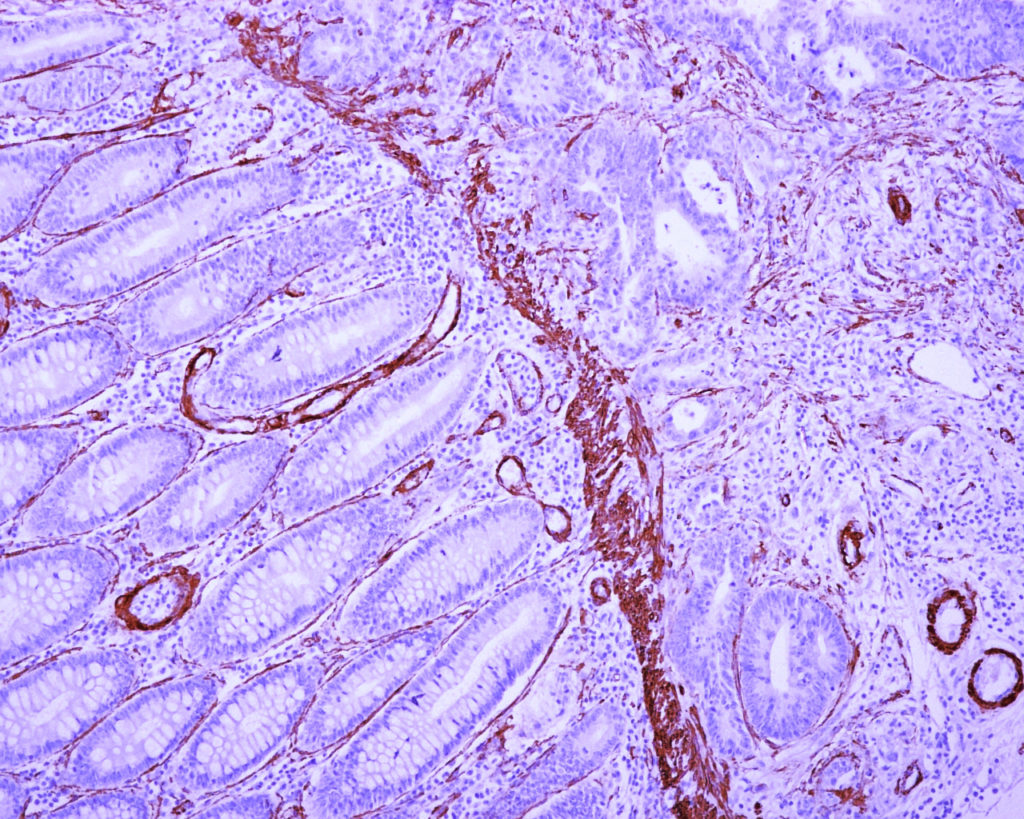Researchers at the Catalan Institute of Oncology- Bellvitge Biomedical Research Institute (ICO-IDIBELL) led by David García-Molleví have identified 108 genes differentially expressed in normal cells accompanying tumors and their equivalents in adjacent healthy tissue tumor. The genetic profile of these normal non-tumor cells in tumors provides information on the progression of cancer and may contribute to the classification of patients with colorectal cancer. The results of the study are published in the journal Molecular Oncology. Cancer is a complex tissue where malignant cells coexist with other normal cells, mainly fibroblasts and inflammatory cells, forming a special microenvironment called stroma. In recent years, research groups around the world are investigating the stroma looking for for biomarkers that may be useful in the fight against cancer either as new therapeutic targets or prognostic factors.
Researcher David García- Molleví is part of the research group in chemoresistance and predictors of response and tumor stromal environment ICO- IDIBELL and has coordinated this study which, for the first time, analyzes the differences in gene expression between fibroblasts associated to carcinoma and fibroblasts of the normal mucosa adjacent to the tumor. “We found 108 genes that were differentially expressed in these two cell populations,” explained García- Molleví, who added that “these markers are specific to these two populations of cells.” “These differences could be the result of two situations,” says researcher “or healthy cells are changing their expression adapting themselves to the new environment or healthy tissue changes to guard against the spread of tumor cells”. In any case, García-Molleví adds that the importance of the finding is that it would be useful to predict very accurately what the patient’s course of colorectal cancer will be.
“From this hundred markers, we are working to find a minimum number of genes that give us the same information about the prognosis of the patients, in order to develop a tool applicable to the clinic by routine standard techniques, which would serve to classify patients affected by colorectal cancer according to their risk of relapse once they have undergone surgery”.
Article reference
Berdiel-Acer M., Sanz-Pamplona R, Calo A., Cuadras D., Berenguer A., Sanjuan X., Paules M.J., Salazar R., Moreno V., Batlle E. Villanueva A. and García-Molleví D. Differences between CAFs and their paired NCF from adjacent colonic mucosa reveal functional heterogeneity of CAFs, providing prognostic. Molecular Oncology. doi:10.1016/j.molonc.2014.04.006.http://www.moloncol.org/article/S1574-7891(14)00087-8/abstract

